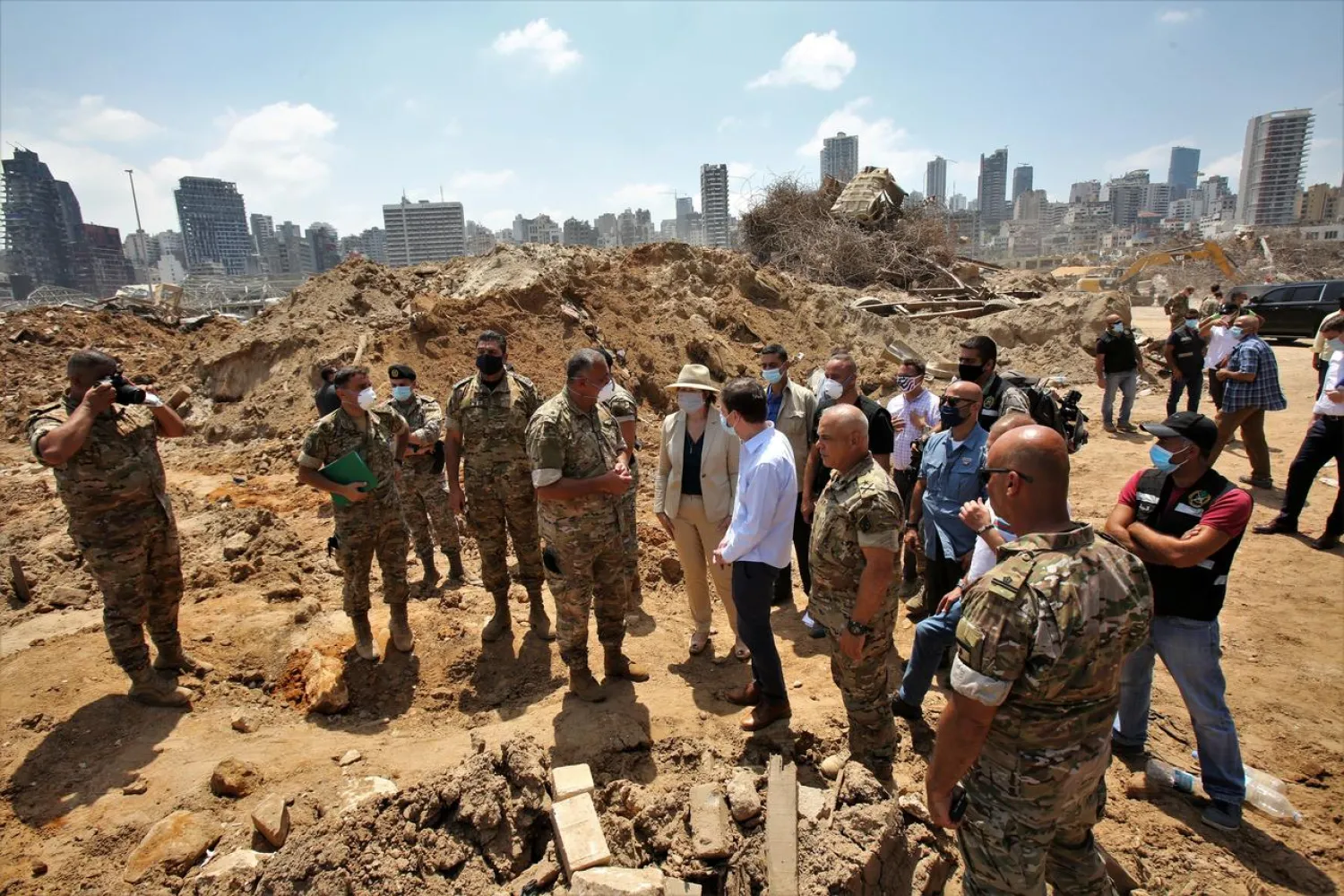A group of Democratic and Republican senators called on the US administration to lead international efforts to help the Lebanese people after the Beirut Aug. 4 explosion and to stand in the way of Iranian and Chinese goals in Lebanon.
In a letter to Secretary of State Mike Pompeo, a group of senators urged the White House to work to secure reform opportunities, warning that Iran and China would take advantage of the existing vacuum to extend their control over the country.
The letter - written by Democrats Jeanne Shaheen, Chris Murphy, Tim Kaine and Republicans James Lankford, and David Perdue - urges the US administration to develop a long-term plan to implement reforms and encourage recovery.
“It is sadly telling that there is little to no faith in providing assistance directly to the Lebanese government due to its rampant corruption. As such, while responding to the short-term needs of the Lebanese people is paramount, we hope that this disaster will refocus the US and international community on the necessity of addressing Lebanon’s deep-seated governance crisis that has brought us to this moment,” the senators wrote.
They added: “It is in the United States’ interest to have a stable and secure Lebanon. Iran is eager to exploit this tragedy to further expand its influence, and we know that Chinese financing to Lebanon would not require the reforms that are desperately needed at this critical juncture. Therefore, we urge you to lead a robust longer-term effort to yield the reforms needed to help the Lebanese people suffering under a collapsed economy and gross government mismanagement.”
Meanwhile, US Under Secretary for Political Affairs David Hale said that Washington had dealt in the past with Lebanese governments that included members of Hezbollah and that they would look into the matter if this happened again.
During a phone conference in Washington, with the participation of Asharq Al-Awsat, Hale talked about his visit to Lebanon last week, saying: “The popular demand for change could not be clearer, and while I, of course, met with and respect all of the leaders and politicians that one has to meet with, frankly, the meetings that were the most rewarding were those with civil society, with protest leaders who asked to meet with me to express their views, which they have not been able to do to the government, which I did.”
He continued: “We will not be providing that kind of long-term assistance until we see a government that’s actually capable of reform and change.”
Asked about the amount of humanitarian assistance that the US has provided to date, Hale revealed that USD 18 million was sent so far for emergency relief assistance.
“This has been between the US CENTCOM, which responded immediately with assistance packages that went to the Lebanese army, and then subsequent aid… and these are going to our NGO partners. None of it goes to the Government of Lebanon...” He emphasized.
On whether he saw any room for Hezbollah to get involved in the next government, the US Under Secretary said: “[Hezbollah] have been in past governments. We have been able to deal with governments in the past with a Hezbollah component, but the question is whether it is going to be a government that’s truly capable of reforms.”
“Reforms are contrary to the interests of all of the status quo leaders and that very much includes Hezbollah, which is today perceived as a big part of the problem,” he underlined.









